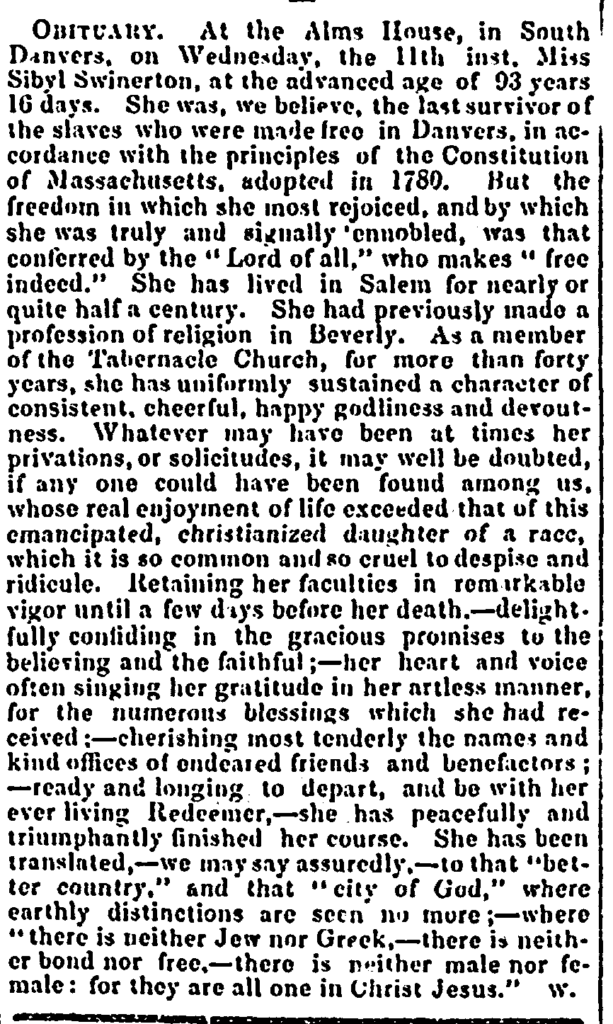February is Black History Month.
Carter G. Woodson, a distinguished Black author and journalist, advocated for a Black History Week in 1924. Woodson felt that the lives and accomplishments of Black Americans were not being properly recorded or celebrated. This idea eventually became what we know as Black History Month.
Black History Month is meant to be jumping off point for an on-going, year round conversation. Today, we start that discussion by delving into the life of Sybil Swinerton, the last surviving slave of Danvers, now Peabody.
Sybil Swinerton was born in 1772, likely in February per her obituary. Her exact birthdate is unknown. As she was enslaved, formal written birth records simply do not exist. On any documents, Sybil would be noted as property, not a person.
Slavery was formally abolished in Massachusetts through a series of court cases between 1781 and 1783. Sybil would have been freed around the age of 11. According to John Wells’ The Peabody Story, Sybil Swinerton was enslaved by John Swinerton of Danvers (now Peabody). Sybil used his last name once free. Sybil’s name was sometimes spelled Sibyl, Sibbel, or other variations on Sybil.
It was difficult to find information on Sybil prior to 1830, as records for this period only list the male head of household.

In the 1855 census, she was described as an 82 years old, female, Black and slave, formerly in Danvers. She lived in Salem, Massachusetts.

In the Federal Census of 1860, she was listed as a washerwoman, aged 88.

The most information we have on Sybil was from her obituary in the Salem Observer. She died at the age of 93, at the Almshouse in South Danvers (now Peabody) on March 11, 1863.
We uncovered some of the details of Sybil Swinerton’s life. However, we could know so much more. It comes down to what is recorded and who is deemed “important.”‘

At the Peabody Historical Society and Museum, we work to preserve the history of Peabody and all of its people. However, at this time, our museum collections have very few documents, photographs or objects that speak to the Black experience in Peabody. We want to change that with your help. We are actively seeking donations to better tell this story. Please reach out with any questions to Assistant Curator, Nora Bigelow, at [email protected].
